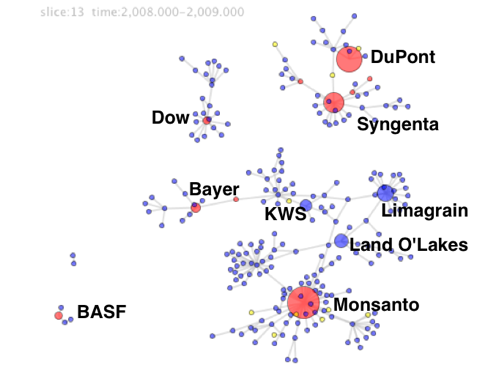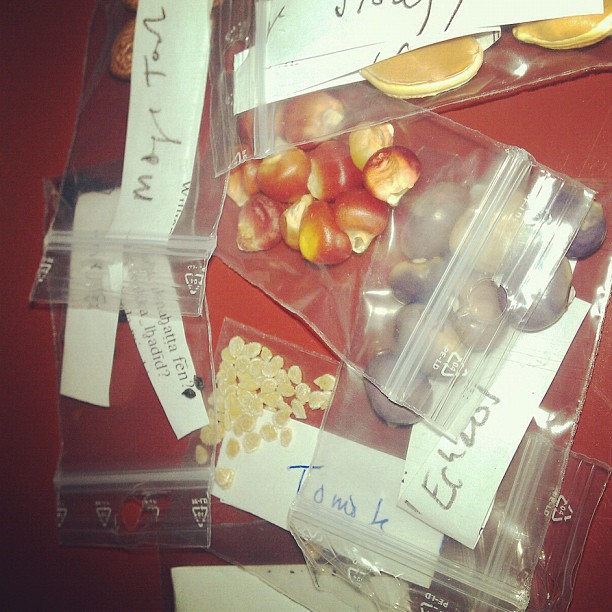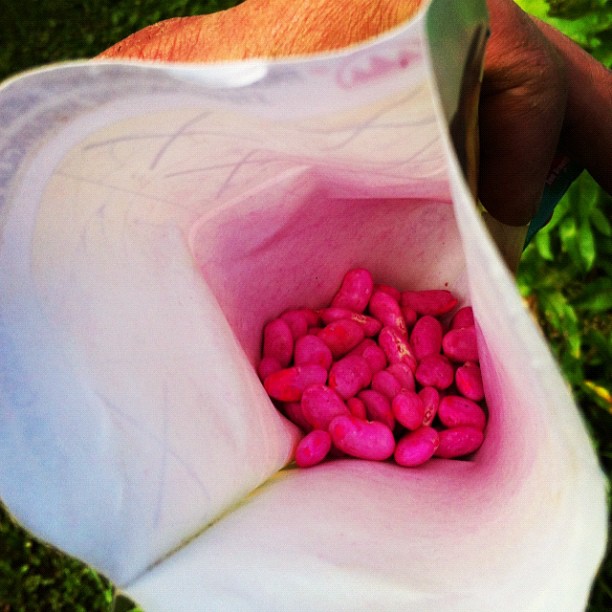Seed saving is one of the most complicated things in a garden. A huge knowledge transfer is needed. Often, because of cross-pollination and other issues, it is almost impossible to do it well on a small plot like the one we have. We are in the process of building up a seed bank here in Bern. But still we end up buying some of our seeds every year. But which ones are okay to buy? It’s a real dilemma.
Of course I want to buy organic seeds and support local seed saving companies. The cynical and destructive ways big scale seed businesses turn a profit makes me very angry. And the way the Monsantos, Syngentas, Bayers, Dows and Duponts are building huge monopolies and lobbying politics for their patents and such shit, it’s simply disgusting.

80% of seed business is now run by just 5 or 6 (BASF is also huge) companies
Yet I recently had a conversation with some fellow urban agriculturists, and somehow got stuck on the wrong end of the argument. Because cost is a real issue, only idealists will buy the organic seeds, and is that really the goal? As long as that issue is not addressed most people will end up buying the cheaper non-organic seeds and supporting big agriculture.
Please have an honest look, the difference in cost is very off putting. If I compare regular seeds with organic seeds the cost difference is enormous. Not only do they cost more, sometimes two or three times more per seed package, they also contain less seeds per package AND these seeds germinate less. This all adds to the cost.
From the little I know about seed saving, it seems to me, that if you do it right, quantity is one of the smaller issues, most plants produce massive amounts of seeds, so you end up with a lot. The effort to collect it is bigger of course, if done by hand. But still. It does not merit the cost difference.
So here’s my point of view:
– Organic seed packages should at the very least contain the same amount of seed as their non-organic counter part. Ideally even more, to compensate for issues with germination. This way everyone will think they get a fair deal and feel like they only pay more for the organic quality.
– Hybrid seeds must be boycotted. They are bred not to reproduce, in other words, the seeds these plants produce, will not, and can not, germinate the next year. At least in Switzerland these seeds are easy to spot, because they must be marked as such (F1 here).
– Mid-term the goal has to be to get people to collect their own seeds. With easy things like tomatoes and peppers anyone can start right away. Start small, with a few varieties, and build from there.
– Seeds are the future, we need to fight fro them. And everyone can help. Please start seed banks, offer seed saving workshops, hold seed trading parties, make seed donations. Public libraries are starting to build seed banks. And a lot of political campaigning needs to be done.
seed-sovereignty.org
stadt-tomaten.ch
prolongomai
zollinger-samen.ch
arthasamen.ch
prospecierara.ch

